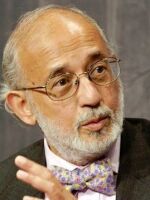What should we make of the news that Edward Snowden came in second place for TIME Magazine's Person of the Year, losing out only to Pope Francis?
For leaking hundreds of thousands of classified documents to the press, Snowden is a hero to some and a traitor to others. His action has fueled debates over government surveillance, national security and information privacy. Currently, he’s been granted asylum in Russia.
As someone active in military and security affairs for some time now, I’ve had many conversations with college students, military officers, business men and women, and academics about Mr. Snowdon. And I've discovered that what one thinks of him seems to depend quite a lot on one’s age.
Older Americans seem to be far more concerned about their loss of privacy due to the government’s extensive wiretapping and electronic bugging of everything from telephones to emails to Facebook and Twitter - as revealed by Snowden. On the other hand, I’ve learned that many younger Americans have a wholly different view of privacy.
For example, one of the more popular search engines has collected pictures and stored them under my name, pictures pulled from documents and events going back years. Some of the pictures don’t even belong to me.
I wondered why they'd do this. Then it dawned on me that the pictures were meant not just to show who I am but also my associates and family members. I didn't authorize the collection and it bothers me.
But this seems to cause barely a ripple among those who were born with a smart-phone in their hands. To them such an accumulation of pictures represents the beneficial power of the Internet.
It seems that those of us who've had to learn how to use smart phones and social media spend a good deal of time thinking about the down side of these inventions – while those who grew up with them are just too busy taking advantage of the technologies to worry about potential nefarious uses. It rather reminds me of the difference between those who grew up with books and those who lived before the printing press and wondered what God had wrought.
But I also learned something else in my conversations: There was surprising agreement among those I talked to that by breaking the solemn oath of secrecy that he had voluntarily given to his employer, Mr. Snowden had crossed a line and let his country down. People of all ages and political persuasions, in States as diverse as Vermont and Washington DC felt this way. So do I.
I am known for taking strong positions on controversial issues, but this time, I simply can't. I believe the transparency generated by Snowden will ultimately make American democracy stronger, but I am just as convinced that one cannot simply walk away from an oath of loyalty. That’s not the way this country works.






